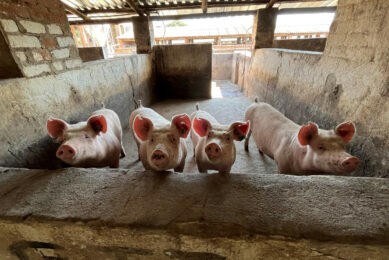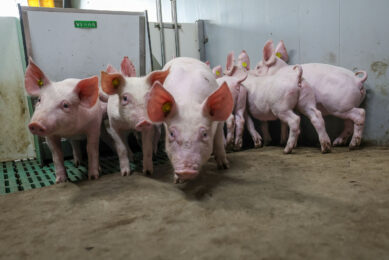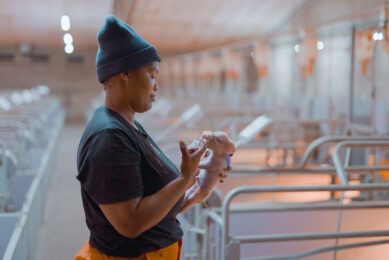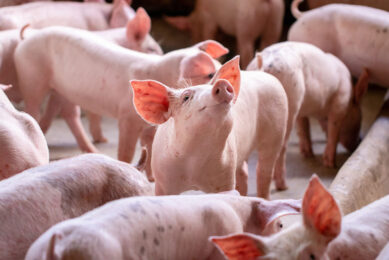Pigs add value to mixed farm in South Africa
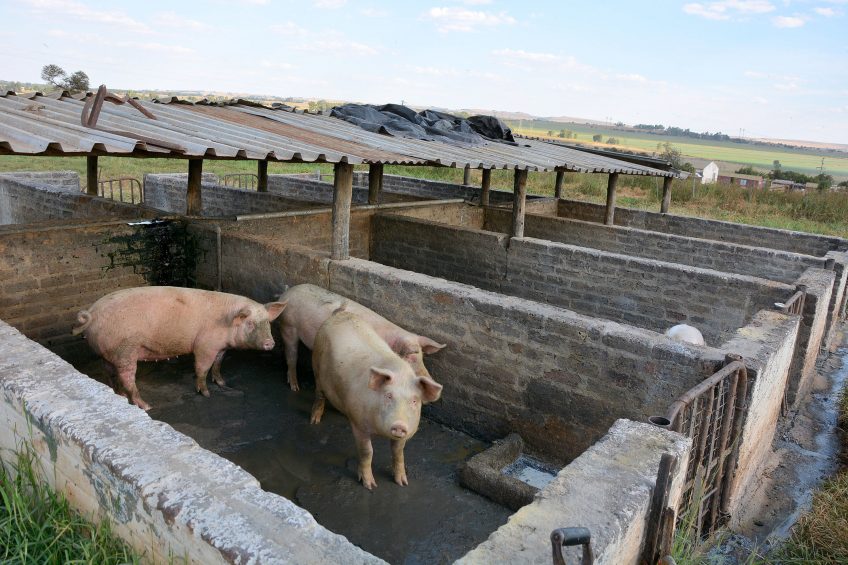
A South African mixed farm that processes its own milk also runs a pig enterprise to utilise excess dairy produce and add value to the farm profits.
Anthony Khourie, runs Bosparadys Farm situated near Magaliesburg outside Pretoria, in partnership with his father William and brothers Joe and Pieter.
Mixed farm with dairy, sheep, pigs, hens
As it’s a mixed farm each family member looks after his own section of the farming business with Anthony Khourie heading up feeding and livestock. Dairying is the dominant enterprise accounting for 80% of the total farm income but the Khouries also farm with sheep, pigs, hens, goats and game.
The Khourie family have farmed there for over 20 years and have built up a profitable business with an annual turnover of just under 200 million rand (€13.6 million).
2,000 hectares of land
The family owns a total of 2,000 ha and rents a further 500 ha from a local landowner. Around 400 ha of this land is planted out in grasses and 1,100 ha is used to produce maize silage averaging 14 tonnes per ha. The remainder is natural land used for game farming.
Bosparadys Farm has 800 cows producing an average yield of 30 litres per cow per day but they also have a high yielding batch of 250 cows producing 40 litres per day.

Daily production of 24,000 litres of milk
In total, the farm’s daily production of 24,000 litres is used in their on-site factory together with an additional 26,000 litres that are bought in each day from a local supply network of 12 other dairy farmers.
Of the total output, liquid bottled milk accounts for 85% while 12% is made into buttermilk and 3% for yoghurts and cheese. The business operates its own fleet of delivery trucks that deliver the milk to a network of 200 shops and supermarkets up to a 150 km radius of the home farm.

Supplying dairy produce
However, when supplying dairy produce to so many shops there is always a quantity that will be returned for one reason or another and that is where the pigs fit in to the equation. The Khouries buy in weaners to utilise all the dairy returns and sell them at a later stage as fat pigs in order to make a profit.
Around 2% of the dairy produce that is manufactured at Bosparadys is returned and is fed directly to the pigs along with some mineral supplemented pig grower feed. Anthony Khourie said: “Pigs are kept on the farm primarily to feed on the returns of milk produce from the retail outlets which currently accounts for 2% of the total output. The pigs are purchased as weaners weighing 15 kg for around 300 rand (€20.40) each. They are then fattened on the waste dairy produce and are sold at 45-50 kg for 1,200 rand (€81.60).”

Buying weaner pigs at an auction
“We buy around 100 weaner pigs at auction each time, mostly of the Landrace breed, and house them in our pig accommodation. The waste products are all fed to the pigs which are also fed some grower cake and minerals.
“They fatten up well on the milk, etc, and provide us with a healthy profit at the end of the day.” He closes off, saying, “It’s better feeding the milk to pigs and utilising it, rather than simply dumping it all.”
Read the entire article on the dairy farm Bosparadys soon at
www.dairyglobal.net.



